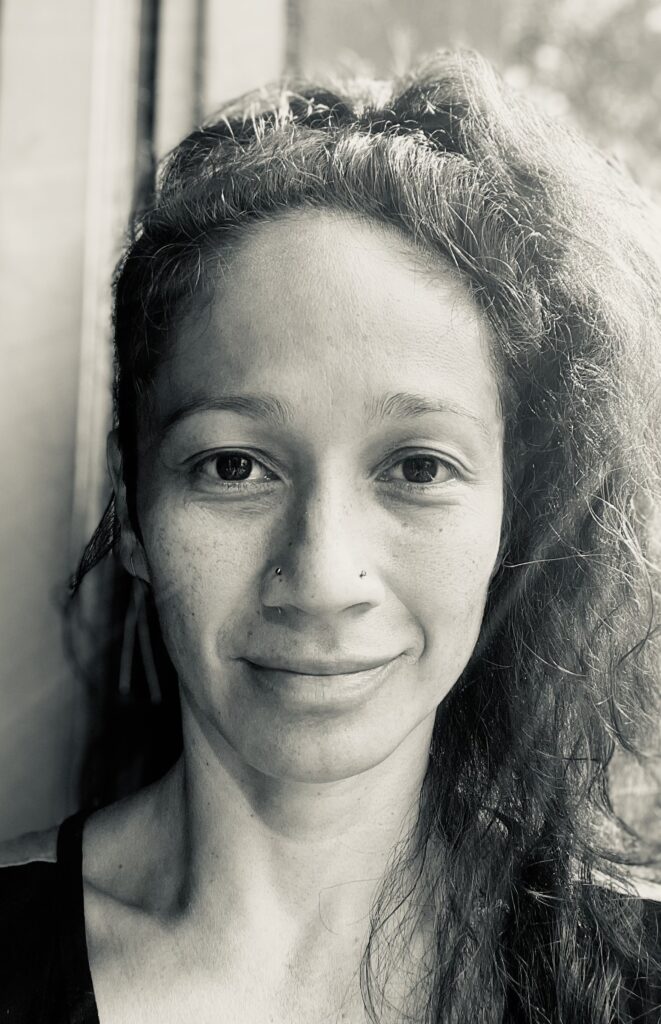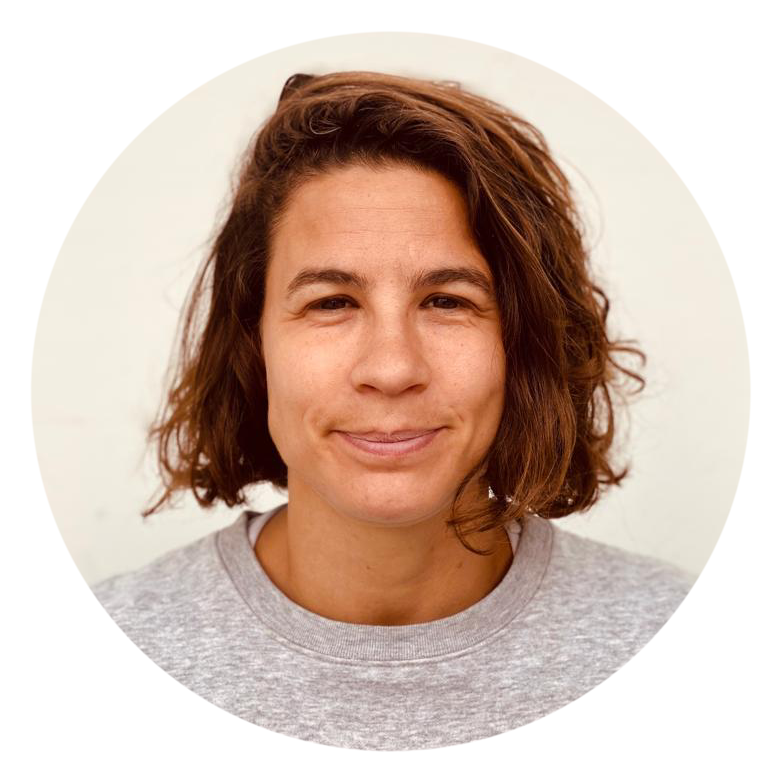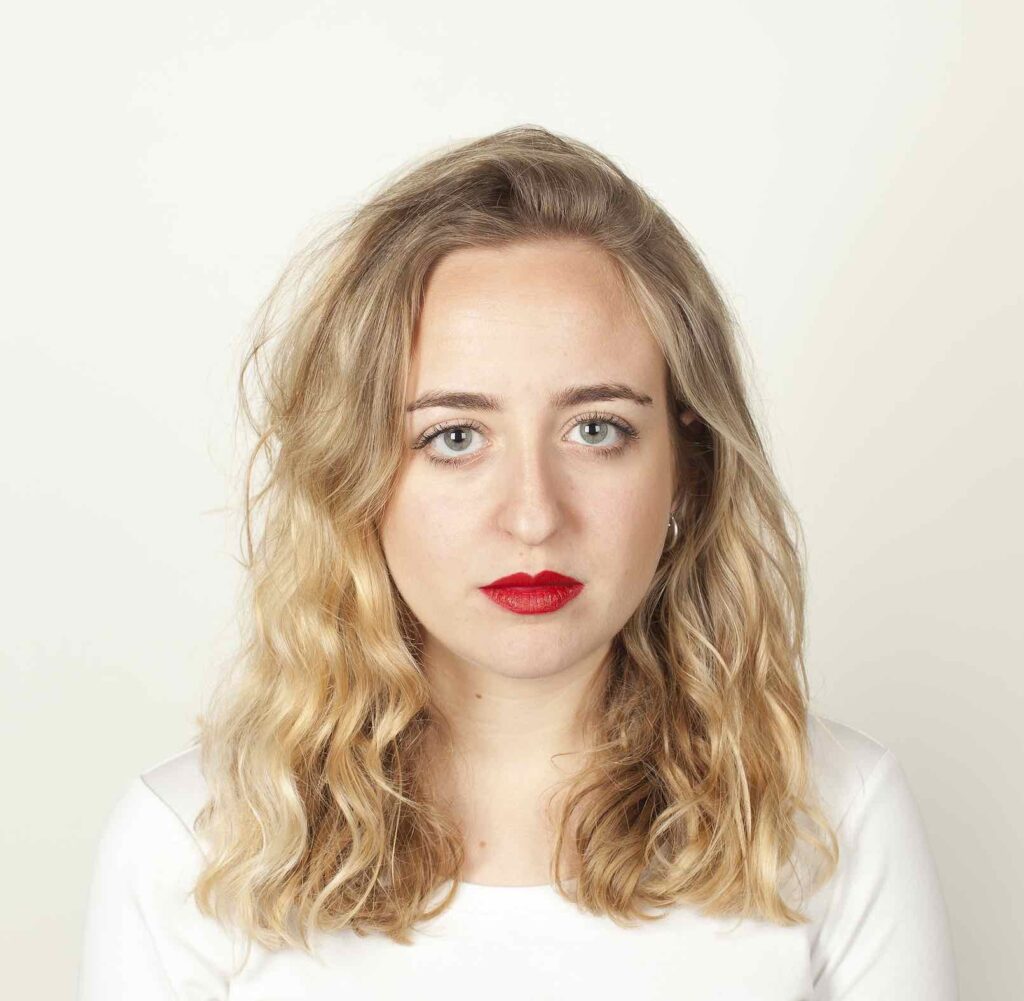The third Digital Leap learning module will kick off in early October. Before the module begins, we want to introduce the amazing selected artists, who will spend five days full of learning and networking in Terrassa and Manresa, Catalunya. Now it’s time to introduce the five artists from Spain!

Laura Alcalà Freudenthal works as an independent dance artist combining creation projects, choreography, interpretation, research, pedagogy, community dance creations, dance writing and working as an assistant director. As a dancer she has worked with choreographers such as Pere Faura, Vero Cendoya, Roberto Olivan or Àngels Margarit. In her work she focuses on transmission as an artistic fact: the rewriting of dance in dialogue with what is already there, the possibilities of writing and creating an archive of dance from the dance itself. She understands transmission as a political, social, ecological, intellectual and artistic act in itself. She is a dance teacher at the ERAM university school where she is developing her pedagogic research focusing on the journey between theory and practice. In 2017 she co-created the company LaSúbita.
Laura is coming to the third module with many expectations: “I am looking forward to meeting and exchanging with other international artists as well as learning and experiencing different ways of dialogue between my dance research and digital forms.”

Ingrid Esperanza is a circus artist and creator based in Barcelona. She is dedicated to the investigation of movement and the exploration of hybrid languages in the contemporary scene and is the co-creator of the Otradnoie, Imaga and Páramo Cero projects. Esperanza has worked for companies like Cirque du Soleil, Animal Religion and Karlik Dance Theater among others. Currently Esperanza is the director of Haa Collective, its transdisciplinary project called Picaderø.
Ingrid attended the second learning module in Vilnius in spring 2022 and is now joining the third module eager to to learn about the possibilities that digitization offers and find a way to connect it with her artistic proposal: “We are immersed in the era of digitization and I think it will take time to adapt. For those of us who are experiencing this transition, we need time to explore these tools of communication and connect them with human sensitivity.”

Dídac Gilabert generates shows and audiovisual projects through the artistic project troposfera.xyz, where he also researches juggling and writes theory to order his ideas through web platforms and thus contribute actively to the circus community. Dídac also composes soundtracks for shows and has been a circus programmer at FIS, the International Solo Festival since 2016. For some time now Didac has been quite obsessed with ambient music and the generative systems that many sound landscapers use to reach new horizons and textures. After researching a lot about generative music, he decided to explore the same with juggling.
Nowadays Dídac is working on a project called System Plylog to create a system between juggling, video, music, lighting, code and other elements, where everything is connected and in a constant dialogue. He took part in the first module in Prague and wishes to deepen his knowledge in the third module: “This module is an ideal opportunity to learn more about digital environments.”

Maria Palma is a circus artist, music lover, student at the Escola Massana, a former synchronized swimmer and a graduate in Physical Activity and Sport Sciences. In 2013 she began studying circus at the Rogelio Rivel in Barcelona and at the Codarts University of the Arts, Rotterdam, where she specialized in partner acrobatics and teeterboard with Raimon Mató. Together they created Madame Gaüc; a project that has lasted for the last eight years and allowed her to develop on an artistic and human level. She is currently immersed in a new creative stage on her own, The Submerged Voice project, in which she is committed to the fusion of disciplines as a way of promoting innovation and the search for new languages.
Maria aims to grow her networks, both online and in person: “I am looking forward to expanding my digital skills in this Digital Leap experience, networking with professionals in the sector and improving my communication and distribution strategy on the Internet.”

Inka Romani is a dancer and creator trained at the Choreographic Center in Toulouse CDCN with a BA in Communications. She has worked with choreographers Marquez & Zangs (UK) and Germana Civera (France), Core Dance Company (USA) and also as a production assistant for Sadler’s Wells Theater and La Mutant (Spain). She currently lives in Valencia where she develops her work and collaborates with artists La Coja Danza, Norberto Llopis and Julia Zac. She is a co-founder of Club Mutante.
Inka took part in the Prague module and would like to gain more insights into how her artistic practice can travel through different platforms: “At the same time, I’m willing to explore new ways to relate other narratives to ensure that the concept of the work is still “readable” and accept the mutations generated by the format and platform used.”









